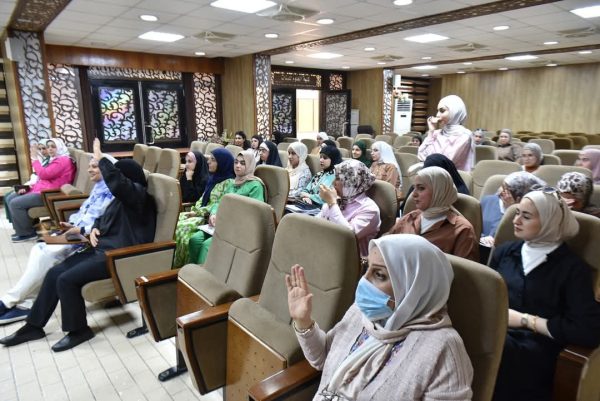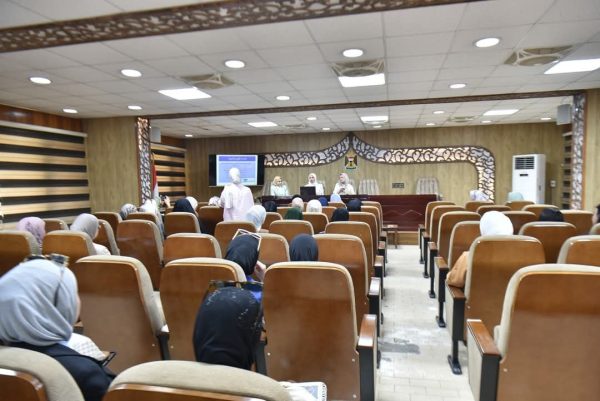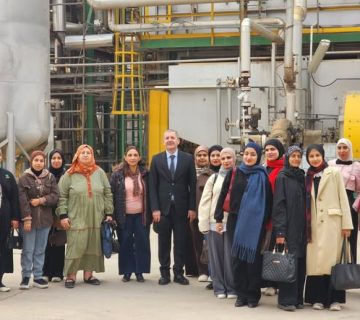Under the patronage of Professor Dr. Sameera Naji Khdim, Dean of the College of Science for Women, the Women’s Affairs Unit, in collaboration with the Continuing Education Unit, organized a workshop titled “Maternal Mental Health: Strategies and Guidelines.” The workshop was presented by Dr. Sarah Ibrahim Nasar from the Medical City Hospital, along With Ms. Nayyan Farid Majid, Ms. Rasha Saad Akram.
The workshop aimed to highlight the importance of maternal mental health and provide practical and effective advice to support mothers in facing the psychological challenges they may encounter in their daily lives. It aimed to clarify fundamental concepts of mental health and the impact of daily stresses on a mother’s mental well-being, which can include work, family pressures, child-rearing, as well as economic and social problems.
The workshop also addressed the psychological aspects related to pregnancy and the postnatal period, discussing issues such as anxiety and depression that may affect mothers during these times, and emphasizing the importance of mental health care and support during these stages.
Maternal mental health is a critical topic that significantly influences both the lives of mothers and their families. The mother is the cornerstone of the family, and her mental state can positively or negatively impact the family. Therefore, society’s attention to maternal mental health is an essential part of enhancing the quality of life for both the family and the community at large.
The workshop presented various strategies and guidelines that can help mothers maintain mental balance, such as taking breaks, engaging in physical activity, practicing relaxation techniques like deep breathing and meditation, building a social support network from family, friends, or specialists, and effectively managing time to achieve a balance between professional and personal life.
Additionally, the workshop discussed the negative consequences that may arise from neglecting maternal mental health, including the deterioration of family relationships, increased feelings of loneliness and depression, and the subsequent impact on the mental and physical health of children.











